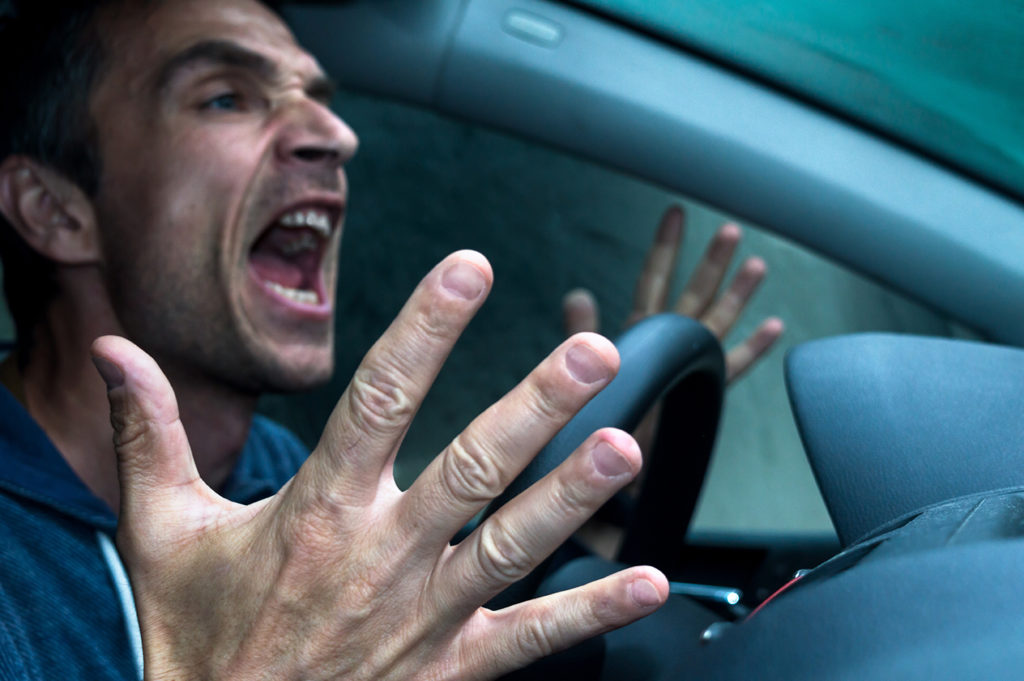As someone who drives for a living you no doubt spend “above average” periods of time on the road, this can result in more frequent encounters with undesirable drivers. They may commit a simple error or a driver could be having a bad day – either way the feeling of being provoked on the road can lead to rage.
We go over some top tips to counter these negative experiences and to help ensure you’re not compelled into any action that could – in the the worse case – threaten your livelihood. Taxi drivers, hauliers and couriers will all have witnessed some very poor driving when behind the wheel.
It’s easy to react impulsively in an irrate manner. Yet, we would encourage the thinking that most road rage confrontations are entirely avoidable. No matter how much they might grind your gears!
Plan Insurance can provide bespoke taxi insurance quotes for all UK drivers. Just fill in our short online questionnaire, and our professional brokers will be in contact to arrange your insurance.
Road rage frequently results in aggressive driving manoeuvres such as speeding, running red lights, weaving in and out of traffic, and tailgating. According to a Department of Transportation data, aggressive driving contributed to 110 fatal crashes in 2019.
Furthermore, according to a 2021 nationwide study, 84% of drivers admit to feeling irritated or angry at least occasionally while driving, and 54% of drivers say their behaviour alters when they are stressed or furious.
Practicing polite driving
Avoid tailgating, speeding, weaving, uncontrolled braking, and departing on main beams. When in doubt, be courteous. Getting into your vehicle with minimal stress levels is very important. So making sure you don’t go on the road straight after tackling a problematic phone call can ensure emotions don’t spill over after the smallest of on road confrontations.

Give other drivers the benefit of the doubt
The majority of driving errors are accidental. Make an effort not to take them personally. The risk of harm or death is not worth a strong response. Remember to protect your job and set a bench mark for yourself on how to react to other errors by other drivers, who might not depend on being on the road for their livelihood as you do .
Taking enough breaks
Do not set unreasonable ambitions for yourself. As an occupational driver, working long hours can have an adverse risk to your health and mental wellbeing. Knowing when to take a break potentially for a tea or coffee and a sugary snack is key. Breaking your shift up will aid your stress level’s reduction.
Steer clear of aggressive drivers
Keep a safe distance between yourself and aggressive drivers. Consider slowing down to give aggressive drivers room to pass or changing lanes to gain distance.
Don’t make rude gestures
Avoid making eye contact or hand signals to aggressive drivers. Use your horn sparingly and only in emergencies. In other instances where other drivers use threatening gestures towards you, collecting evidence is key and in these instances having a dash cam installed is very useful. Taxi drivers can find out more info here about inward and outward facing CCTV… A Legal Guide To Using Dash Cams for Taxis.
Call 999 or your operator
If you are being approached by an aggressive driver, dial 999 and stay on the line with the operator, the alternative is to call your employer for advice for dealing with aggressive drivers. If you are being followed, do not return home. In the most extreme cases drive to the nearest police station if the other driver is threatening you.


